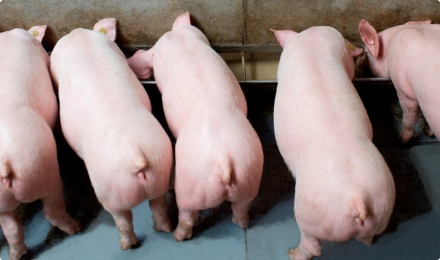People have choices when it comes to food. Unfortunately, the right choices are not always made, and people tend to overindulge in animal protein, fat, sugar, and salt.
Luckily, farm animals don’t have the option of making bad nutrition decisions. They have a whole industry looking after their best interests, including nutritionists to ensure they are eating a healthy, balanced diet. The University of Guelph as an overwhelming leader in the field and is the alma mater of almost every senior nutritionist at every major feed company. The knowledge graduates gained at Guelph is a direct result of the number of animal nutrition scientists and faculty, industry support from the animal feed industry, and the school’s partnership with OMAF and MRA. This partnership has resulted in drastic changes to make nutrition a key factor in producing a top of the line animal and improving human health, such as incorporating omega-3 fatty acids into eggs and cow’s milk. The University of Guelph is also leading the way in finding new ways to develop co-products left over from industrial practices into sustainable animal feed, therefore freeing up grains like corn and soybeans for human consumption. They’re also balancing the nutritional needs of exotic animals in captivity, monitoring the changing levels of mycotoxins in feedstocks due to climate change, and investigating the impact a selenium-enriched diet could have on cancerous tumours.
A new direction and interest in enhanced food has resulted in an exciting time for animal nutritionists and the University of Guelph. People are now seeing how animal nutrition can affect them, opening the door to new opportunities and challenges.


